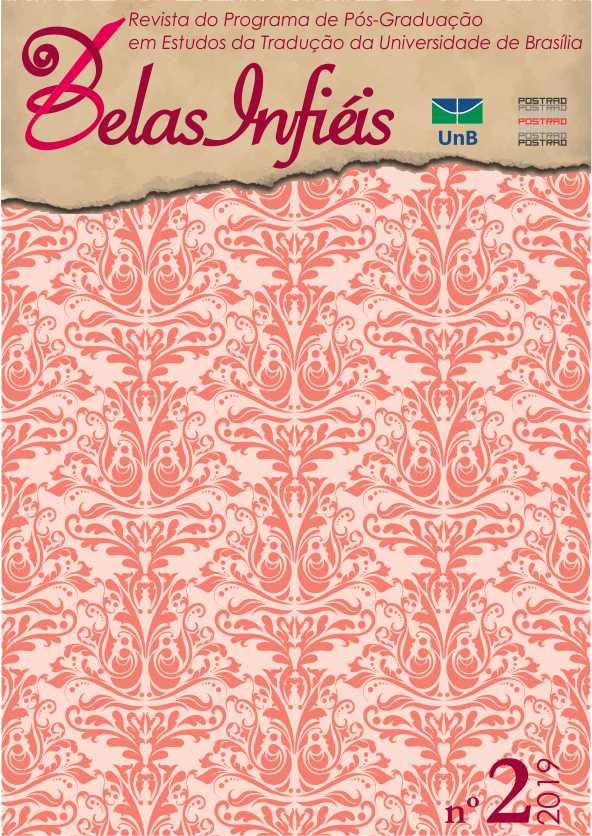Simone de Beauvoir in Argentina: roles of publishing houses and translations in the reception of her work
DOI:
https://doi.org/10.26512/belasinfieis.v8.n2.2019.24372Keywords:
Argentine translations. Discourse mechanisms. Publishing houses. Simone de Beauvoir.Abstract
The present paper based on traductology, philosophical feminism and Gender Studies deals with the wide, quick and influential diffusion of Simone de Beauvoir´s work, not only in culture of the 50’ and the 70’ but also along Latin American countries and Spain thanks to the publishing houses settled in Buenos Aires that commissioned the translation of her works to the well-known intellectuals of that time. (CORBÍ SÁEZ, 2010, p.77). Translation analysis enables to introduce concomitant issues not only on the theoretical and conceptual reception and the philosophical development but also on the construction of new comprehensive categories that show lexical fluctuations and epochal influences (FOUCAULT, 1992, p.128-129). In order to analyze these issues, the present paper presents the revision of significant cases related to terminology and syntax in Le deuxième sexe (1949), as it is well known, a fundamental and valid work still taken into consideration in Gender Studies. To this respect, on the one hand discourse mechanisms put in evidence either the visibility or invisibility of the femenine sex-gender, analyzed from a traductological point of view, always confronting the original French edition which first translation into Spanish is due to Pablo Palant (1954) as El segundo sexo. On the other hand, an exhaustive survey of Beavouir´s translated works, and reference to the translators is offered in the appendix.
Downloads
Downloads
Published
How to Cite
Issue
Section
License
Given the public access to this journal, the texts are free to use but requires the recognition of the original authorship and initial publication in this journal to be properly stated.
 The journal allows the use of works published for non-commercial purposes, including the right to submit the work to publicly accessible databases. Published contributions are the sole and exclusive responsibility of the author(s).Â



















